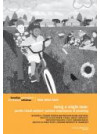This Families Commission report looked at a social environment in which families have priority and can flourish, enabling more families to achieve the successful outcomes they aspire to.
Discussions about parenting often cast single mothers in a negative light. They are viewed as creating an environment that is not conducive to raising healthy, happy, well-adjusted children who go on to achieve well in life and contribute fully in society (Edin & Lein, 1997; Reekie, 1998). Their circumstances are pathologised, and they are understood in terms of a deficit model. In New Zealand this is very much the case for young single mothers (Pittaway, 2005) and Māori or Pacific Island single mothers (Todd, 2008).
This research project looked beyond this negative approach to single motherhood and explored some of the positive parenting experiences of Pacific Island single mothers and the importance of culture in framing these experiences.
Purpose
This research project aimed to see beyond the above mentioned negativity about single mothers and explore some of the positive parenting experiences of Pacific Island single mothers and the importance of culture in framing these experiences. There were four objectives:
- describe the positive parenting experiences of Pacific Island single mothers in New Zealand
- gain an understanding of what constitutes ‘being a successful parent’
- gain an understanding of obstacles to and systems of support for successful parenting by Pacific Island single mothers (in particular, those systems that facilitate strengths and develop or maintain resilience)
- give consideration to the importance of culture in maintaining and developing strengths and resilience.
Methodology
Qualitative research is used to gain insight into people’s attitudes, behaviours, value systems, concerns, motivations, aspirations, culture or lifestyles (Marshall & Rossman, 2006). As the intention of this research was to gain a deeper understanding of the parenting experiences of Pacific Island single mothers and explore the meaning of parenting successfully within a cultural framework, a qualitative methodology was deemed most appropriate.
Data were primarily collected through one-to-one indepth interviews, following a semi-structured outline. While the semi-structured interview questions had some predetermined order to ensure that the key areas were addressed during the interview, they also allowed for flexibility as to when a question might be asked. This allowed the interviewers to pick up on a thread or follow a lead that was relevant. Open-ended questions were posed in order to stimulate discussion on the topics of inquiry and ensure that the voices of the participants were heard. This approach was considered to be the most effective way to make obvious the multiple voices of the research participants and their multiple realities, and also ensured that the participants held some control.
Key Results
Family is clearly at the very core of Pacific Island frameworks. This commitment to family could be seen in the way that participants’ family members job shared and rearranged roles and responsibilities; this was an expectation, and helped the status and good of all members of the family to be ideally and practically maintained. Other systems of support were connections with institutions and groups such as church, early childhood centres and state services such as Work and Income New Zealand; an authoritative parenting style (see Baumrind, 1978; 1991) and connections with a cultural framework were also fundamental.
A number of obstacles to successful parenting by single mothers were mentioned: lack of money and resources; the attitudes and approaches taken by some social service providers leading to stigma and discrimination; beliefs about styles of parenting; personal issues; and paradoxically, the extended family (the very system that could also provide them with the greatest support). One key informant saw the extended family as sometimes fostering dependency; it was also noted that the extended family could be a site of conflict. It was clear from all these findings that culture was fundamental to the parenting experience of these single mothers.
The endurance of culture meant the participants were embedded in a wider extended family network where household boundaries were fluid, so while some physically lived with only their children in a particular house, members of their extended family could move in and out of the house as family needs changed. Children could also move between the houses of their mother and their grandparents (or other relatives). A family could sit across households or be multi-household.
A number of cultural values held by the participants’ families and communities ensured that they and their children were valued rather than stigmatised and marginalised: being proactive in support of the family; maintaining balance and harmony within the family and relationships; showing respect and giving support to sisters; showing forgiveness; meeting obligations, and doing duty or service; being compassionate; demonstrating love, concern and Christian behaviour; and attributing value to small children. Such cultural values and the desire to connect with cultural frameworks and institutions also ensured these participants were supported as single mothers every day. As mentioned above, a commitment to ensuring the wellbeing and welfare of all family members prevailed; this undoubtedly helps explain why these single mothers saw themselves as successful parents and why their parenting experiences were for the most part positive.
While it is true that in some instances cultural values and beliefs may be shifting and evolving, Pacific Island values and beliefs and norms of behaviour endure, especially in relation to the family, thus better ensuring the welfare of single mothers and their children. Social policy and programmes that seek to work with Pacific Island single mothers must build upon the basic assumptions that family is at the very core of Pacific Island systems and that Pacific Islanders are committed to ensuring cultural values, beliefs and norms of behaviour permeate everyday life, regardless of the changes that can be seen.

